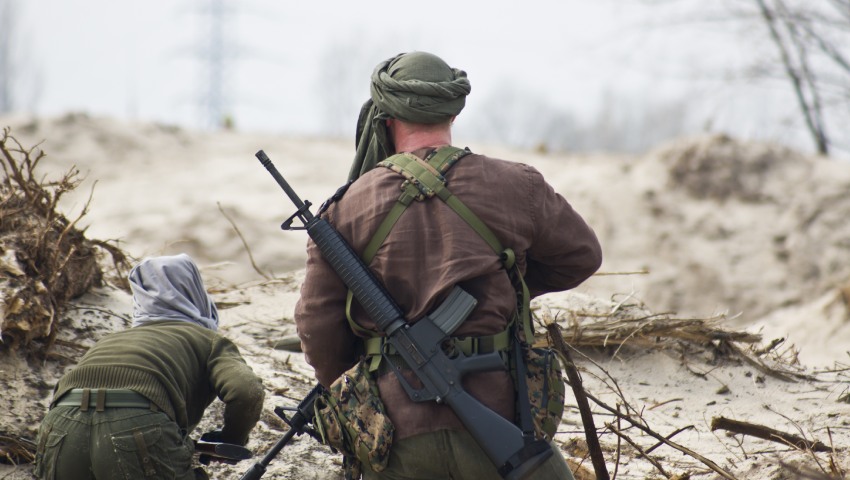Are fears Beijing will exploit the void left by the US in Afghanistan overblown? ASPI’s Michael Shoebridge weighs in.
To continue reading the rest of this article, please log in.
Create free account to get unlimited news articles and more!
The US and coalition withdrawal from Afghanistan following a 21-year occupation has sparked debate over potential geostrategic consequences, with some observers fearing Beijing may look to establish a foothold in the region.
According to Brahma Chellaney, professor of strategic studies at the New Delhi–based Centre for Policy Research, an opportunistic China could leverage a Taliban-led Afghanistan’s mineral wealth and geographical position.
“China would achieve this by offering the Taliban the two things they desperately need — international recognition and economic aid,” he notes.
“With Russia also likely to recognise the Taliban’s leadership in Afghanistan, the group will have little incentive to moderate its violence, despite its current attempts to polish its image.”
But according to Michael Shoebridge, director of ASPI’s defence, strategy, and national security program, the US withdrawal is “bad news” for Beijing.
The civil unrest and instability in Afghanistan, expected to ensue as factions struggle for power, are expected to pose direct security threats to China, which shares a border with the embattled country.
“Beijing will play its ‘non-interference’ card to minimise its engagement in Afghanistan and seek to largely quarantine the Afghan situation from bleeding into China,” Shoebridge writes.
“To the extent that the Taliban can deliver security, Beijing will seek to exploit Afghanistan’s mineral wealth, but we should have low expectations about the scale of that effort.”
According to the ASPI analyst, the Chinese Communist Party (CCP) will likely have a “nakedly transactional, wary relationship” with the Islamist Taliban regime.
“If the US putting more than US$2 trillion into Afghanistan for security and development didn’t work, it’s hard to see how China extracting some of Afghanistan’s US$1 trillion in mineral wealth will create a markedly better future, except perhaps for particular winners in China’s economy,” he continues.
“For the CCP, Afghanistan is about risk mitigation and damage minimisation, not a glittering opportunity, and the Afghan people’s interests rank low on Beijing’s priority list.”
Afghanistan’s internal dynamics, he adds, will hinder any possibility of a stable China-Afghanistan partnership.
“Afghanistan is not an empty space and the Taliban are well short of being in a position to first provide security and then deliver services to 37 million Afghans, if indeed that is even their intent,” Shoebridge argues.
“Afghanistan’s reserves of lithium, copper and gold are still in the ground because of the country’s history of insecurity, lack of a solid legal framework and high levels of corruption.
“None of that seems likely to improve under Taliban rule with cashed-up mercantilist Chinese entities offering inducements to particular leaders.”
Shoebridge flags the likelihood of an enduring civil war in Afghanistan, with the remnant of former security forces, cashed-up and equipped with US military hardware, potentially challenging Taliban rule in some parts of the country.
He continues: “Compounding this, Afghanistan remains an extremely dense patchwork of tribal and other networks.
“Any overarching Taliban cohesion across Afghanistan has been driven largely by the focus on the common foreign enemy.
“Now that that adversary is gone, so has that driver of Taliban cohesion. We should expect fissures and pressures to erupt in the Taliban itself as the different armed and tribal groups it’s made up of attempt to move from insurgency to government.”
This combination of factors, he writes, would more likely result in a “maelstrom than a void”.
“None of this makes for a beautiful friendship — or a happy future for the people of Afghanistan — despite the photo opportunities and grand narratives,” Shoebridge concluded.
Get involved with the discussion and let us know your thoughts on Australia’s future role and position in the Indo-Pacific region and what you would like to see from Australia's political leaders in terms of partisan and bipartisan agenda setting in the comments section below, or get in touch with
Charbel Kadib
News Editor – Defence and Security, Momentum Media
Prior to joining the defence and aerospace team in 2020, Charbel was news editor of The Adviser and Mortgage Business, where he covered developments in the banking and financial services sector for three years. Charbel has a keen interest in geopolitics and international relations, graduating from the University of Notre Dame with a double major in politics and journalism. Charbel has also completed internships with The Australian Department of Communications and the Arts and public relations agency Fifty Acres.

 Login
Login








